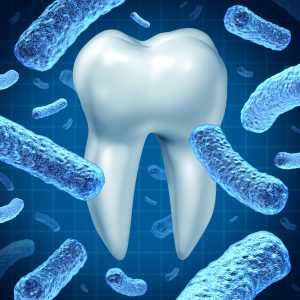
Using mouthwash isn’t necessary. However, it is highly recommended. Quick and easy to use, mouthwash doesn’t just help make your mouth feel and smell fresh. In fact, both prescription and over-the-counter mouthwash can significantly help improve your oral health and reduce your risk for cavities and gum disease.
Benefits of Using Mouthwash
Brushing and flossing should be more than enough to control plaque growth and prevent cavities and gum disease. At least, in theory. Unfortunately, most patients do not brush or floss their teeth thoroughly enough to properly keep dental plaque in control. And, that is where mouthwash comes in.
By using mouthwash in addition to your regular care routine of twice-daily brushing and daily flossing, you help add an additional layer of protection for your teeth against tooth decay and gingivitis, which promotes healthier teeth and gums.
Mouthwash can help fresh breath, prevent plaque build-up, remove any loose particles and food debris in your mouth and stop cavities from farming. However, the keyword here is “in addition”, which means that mouthwash shouldn’t be considered as a replacement to brushing and flossing. Instead, you should look at it as a way to keep your teeth and gums healthy in between brushing and flossing your teeth. As such, the ideal time to use mouthwash wouldn’t be straight after brushing your teeth, but instead, after lunch when you don’t really have time to brush or floss your teeth.
Choosing The Right Mouthwash
If you’ve considered adding a mouthwash or mouth rinse to your oral care routine, it’s important that you understand what options are available to you. More importantly, you should know what factors you should consider when making your choice.
Here are some factors that you should take note of:
- Alcohol or no alcohol? Alcohol is found in plenty of mouthwashes and rinses. This can be a huge problem if deliberately swallowed, which is a very possible if you’re a recovering alcoholic, or someone in your household is. Also, if you want to buy just one type of mouthwash or rinse for the whole family, the safer choice would be to go with alcohol-free mouthwash products available in the market.
- Sensitivity – Certain ingredients found in mouthwash can be irritating, especially if you have sensitive gums or if you’re recovering from a dental procedure. If either is the case for you, consider buying an alcohol-free or natural mouthwash. The latter often contain ingredients such as aloe vera and/or chamomile that generally make them gentler and more soothing on your teeth and gums.
- Plaque control – While all types of mouthwash help protect your teeth against bacteria, some are specialized to be just much more effective. Consider dental rinse containing anti-plaque ingredients if you want to provide even more protection to your teeth and gums.
If you’re still not sure about using mouthwash, or if you think you wouldn’t like the taste or sensation, consider asking your dentist for a free sample on your next visit. Also, don’t hesitate to ask your dentist for their thoughts and suggestions regarding using mouthwash in daily oral care.
